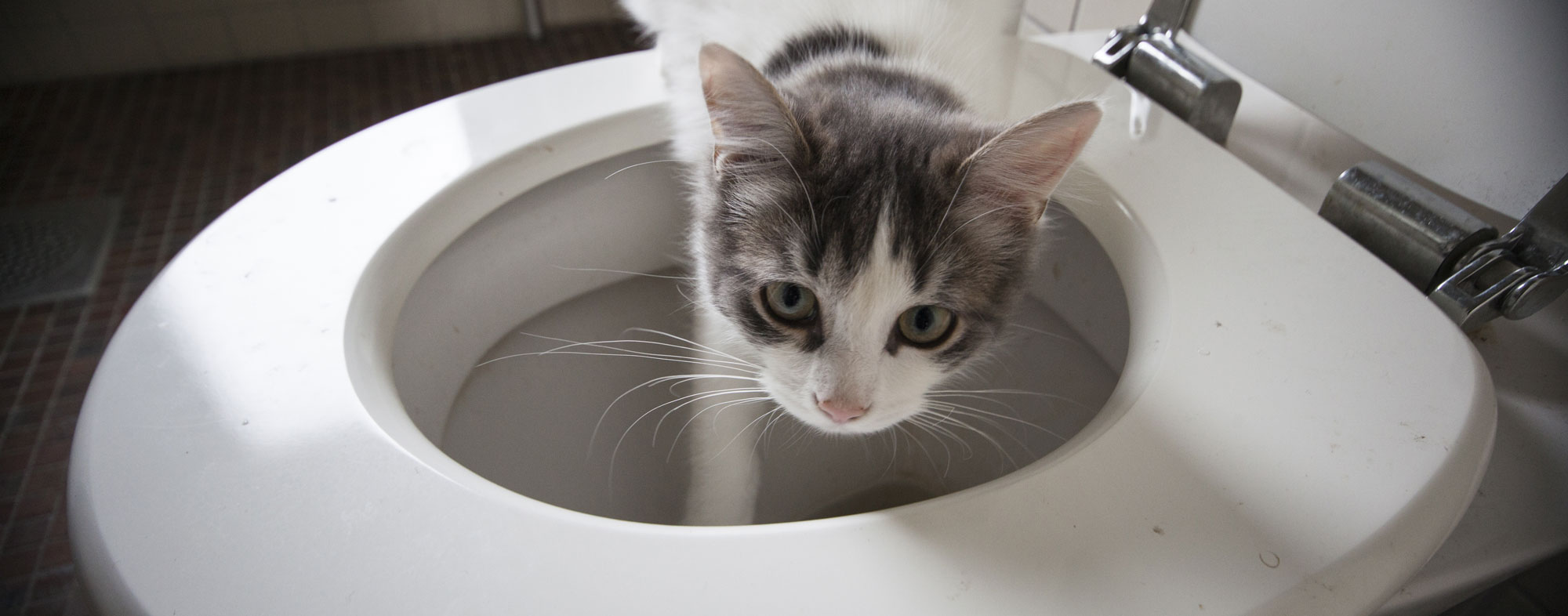Reasons Flushing Cat Poop Down Your Toilet Isn't a Good Idea - Tips for Safer Disposal
Reasons Flushing Cat Poop Down Your Toilet Isn't a Good Idea - Tips for Safer Disposal
Blog Article
Do you find yourself on the lookout for details around Can You Flush Cat Poop Down The Toilet??

Introduction
As feline proprietors, it's essential to be mindful of exactly how we get rid of our feline good friends' waste. While it might appear hassle-free to purge cat poop down the toilet, this practice can have destructive effects for both the atmosphere and human wellness.
Environmental Impact
Flushing feline poop introduces dangerous virus and bloodsuckers right into the water system, presenting a substantial danger to water environments. These contaminants can negatively affect marine life and compromise water high quality.
Health Risks
In addition to environmental concerns, purging pet cat waste can additionally pose health threats to human beings. Pet cat feces might consist of Toxoplasma gondii, a parasite that can cause toxoplasmosis-- a potentially severe illness, specifically for expecting women and individuals with damaged body immune systems.
Alternatives to Flushing
Luckily, there are safer and much more responsible means to take care of pet cat poop. Think about the complying with options:
1. Scoop and Dispose in Trash
The most usual approach of throwing away cat poop is to scoop it right into an eco-friendly bag and toss it in the trash. Make certain to utilize a devoted trash inside story and throw away the waste without delay.
2. Use Biodegradable Litter
Go with naturally degradable cat clutter made from materials such as corn or wheat. These litters are eco-friendly and can be safely dealt with in the garbage.
3. Hide in the Yard
If you have a yard, take into consideration burying feline waste in a designated location away from vegetable yards and water sources. Make certain to dig deep sufficient to stop contamination of groundwater.
4. Set Up a Pet Waste Disposal System
Invest in a family pet waste disposal system especially designed for feline waste. These systems make use of enzymes to break down the waste, reducing odor and environmental impact.
Conclusion
Accountable pet ownership expands beyond giving food and shelter-- it likewise entails proper waste administration. By avoiding flushing pet cat poop down the commode and opting for different disposal methods, we can minimize our ecological impact and shield human health.
Why You Should Never Flush Cat Poop Down the Toilet
A rose by any other name might smell as sweet, but not all poop is created equal. Toilets, and our sewage systems, are designed for human excrement, not animal waste. It might seem like it couldn’t hurt to toss cat feces into the loo, but it’s not a good idea to flush cat poop in the toilet.
First and foremost, assuming your cat uses a litter box, any waste is going to have litter on it. And even the smallest amount of litter can wreak havoc on plumbing.
Over time, small amounts build up, filling up your septic system. Most litter sold today is clumping; it is made from a type of clay that hardens when it gets wet. Ever tried to scrape old clumps from the bottom of a litter box? You know just how cement-hard it can get!
Now imagine just a small clump of that stuck in your pipes. A simple de-clogger like Drano isn’t going to cut it. And that means it’s going to cost you big time to fix it.
Parasitic Contamination
Believe it or not, your healthy kitty may be harboring a nasty parasite. Only cats excrete Toxoplasma in their feces. Yet it rarely causes serious health issues in the cats that are infected. Most people will be fine too if infected. Only pregnant women and people with compromised immune systems are at risk. (If you’ve ever heard how women who are expecting are excused from litter cleaning duty, Toxoplasma is why.)
But other animals may have a problem if infected with the parasite. And human water treatment systems aren’t designed to handle it. As a result, the systems don’t remove the parasite before discharging wastewater into local waterways. Fish, shellfish, and other marine life — otters in particular — are susceptible to toxoplasma. If exposed, most will end up with brain damage and many will die.
Depending on the species of fish, they may end up on someone’s fish hook and, ultimately on someone’s dinner plate. If that someone has a chronic illness, they’re at risk.
Skip the Toilet Training
We know there are folks out there who like to toilet train their cats. And we give them props, it takes a lot of work. But thanks to the toxoplasma, it’s not a good idea.

I was made aware of that report on How to Dispose of Cat Poop and Litter Without Plastic Bags from a good friend on another domain. Make sure you take the opportunity to promote this blog if you enjoyed it. Bless you for your time. Come back soon.
Click Here! Report this page